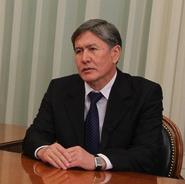
BISHKEK, Kyrgyzstan — For the past month, the word on everyone’s lips across Kyrgyzstan has been “raskol,” meaning “schism,” as voters nervously await a presidential election on Oct. 30 that will be an important test for the unity of the state. With the wounds of last year’s revolution and ethnic violence still fresh, fears of a national conflict along north-south lines are running high, a possibility that holds important implications for regional politics and the U.S. withdrawal from Afghanistan. Eighteen months after the April 2010 revolution that toppled authoritarian President Kurmanbek Bakiyev, Kyrgyzstan is struggling to consolidate its democracy in […]

